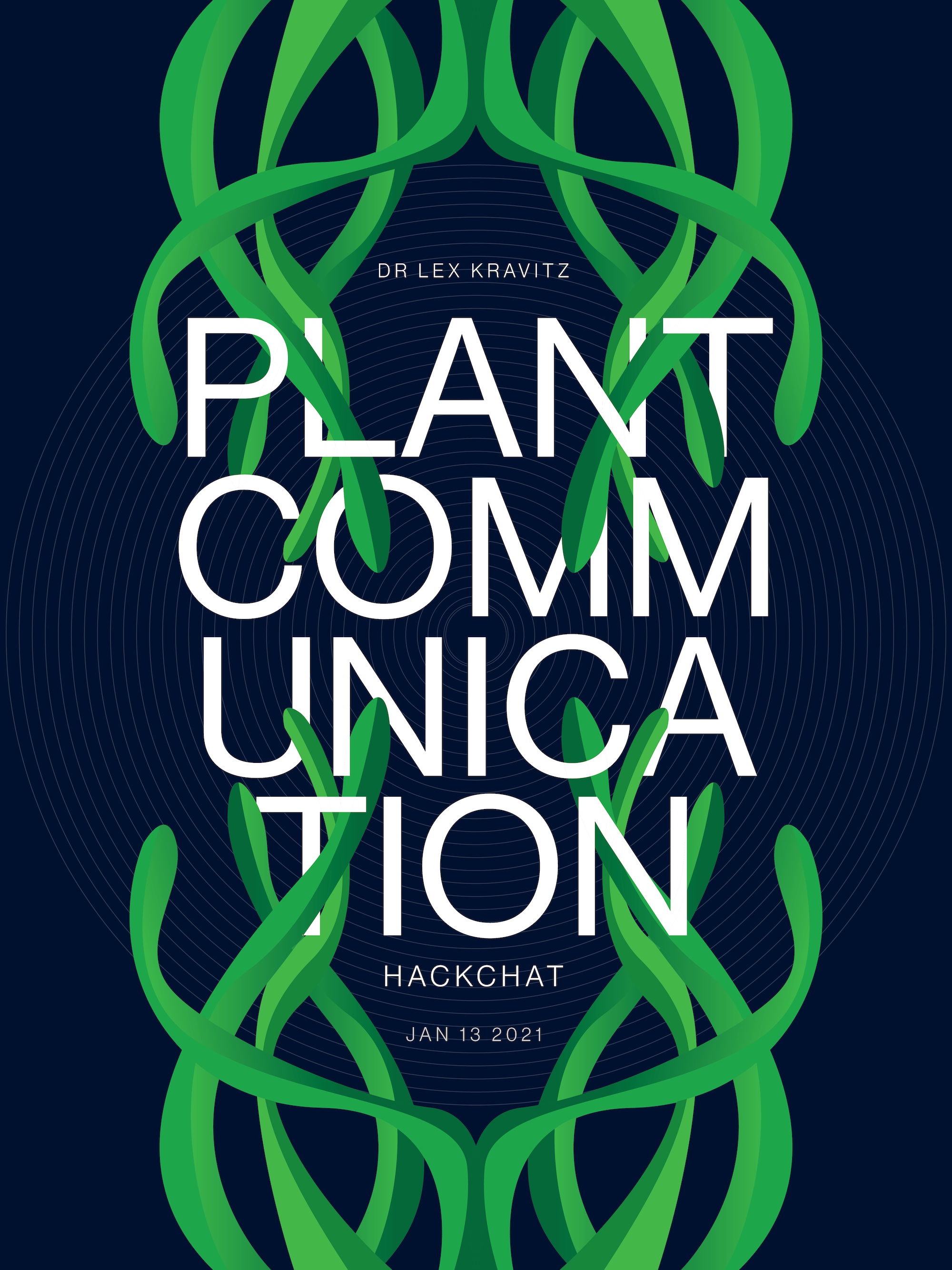Join us on Wednesday, January 13th at noon Pacific for the Plant Communication Hack Chat with Lex Kravitz!
As far as conversation goes, plants are usually a pretty poor choice of partners. Sure, we’ve all heard that talking to you houseplants is supposed to be good for them, but expecting them to talk back in any meaningful way is likely to end in disappointment.
Or is it? For as simple and inanimate as plants appear to be, they actually have a rich set of behaviors. Plants can react to stimuli, moving toward attractants like light and nutrients and away from repellents. Some trees can secrete substances to prevent competitors crowding around them, by preventing their seedlings from ever even taking root. And we’ve known for a long time that plants can communicate with each other, through chemical signaling.
Plants are clearly capable of much more than just sitting there, but is there more to the story? Neuroscientist Lex Kravitz thinks so, which is why he has been wiring up his houseplants to sensitive amplifiers and looking for electrical signals. While the bulk of what we know about plant communications is centered on the chemical signals they send, it could be that there’s an electrical component to their behaviors too. Join us as Lex stops by the Hack Chat to talk about his plant communication experiments, and to see if it may someday be possible to listen in on what your plants are saying about you.
 Our Hack Chats are live community events in the Hackaday.io Hack Chat group messaging. This week we’ll be sitting down on Wednesday, January 13 at 12:00 PM Pacific time. If time zones have you tied up, we have a handy time zone converter.
Our Hack Chats are live community events in the Hackaday.io Hack Chat group messaging. This week we’ll be sitting down on Wednesday, January 13 at 12:00 PM Pacific time. If time zones have you tied up, we have a handy time zone converter.
Click that speech bubble to the right, and you’ll be taken directly to the Hack Chat group on Hackaday.io. You don’t have to wait until Wednesday; join whenever you want and you can see what the community is talking about.

















“As far as conversation goes, plants are usually a pretty poor choice of partners. Sure, we’ve all heard that talking to you houseplants is supposed to be good for them, but expecting them to talk back in any meaningful way is likely to end in disappointment.”
Regular chatterboxes, always talking about the weather.
There are many, many ways plants communicate between themselves and also with animals.
This is just one, modulating electric fields around fllowers: https://someinterestingfacts.net/do-flowers-use-electrical-signals-to-attract-pollinators/
The main obstacle for studying plants behaviour is our common “simple and inanimate and not intelligent” bias.
“The main obstacle for studying plants behaviour is our common “simple and inanimate and not intelligent” bias.”
Because plants are autotrophs, and didn’t have a great need to chase after food like our ancestors, they took a different evolutionary path but that doesn’t mean they aren’t sophisticated life forms, and judging by the number of plants on the planet I’d say there evolutionary strategy worked our just fine.
here are many plants that hunt animals for example (over 600 species) and they do it because where they grow, the soil is too poor / minerals are not available. So, autotrophic plants are a majority that´s sure, but not all. Some even invented modified leafs to hunt … underground: https://io9.gizmodo.com/this-carnivorous-plant-traps-and-digests-its-prey-under-5924206
And many, many elaborated very selective symbiosis with fungi and bacteria. There also, there quite some signalling and sophistication involved
Plants can ear, smell, taste … and yes even emit sounds that the insects pick: https://www.livescience.com/27802-plants-trees-talk-with-sound.html
I’m just saying that plants are just every different from animals, no muscles, no nerves, no facebook, but are no less complex. Also thanks for the link to the plant hearing article, that is just cool!
Well if plants use electrical signals to communicate why not just hook up a plant to an electrical current to theoretically disrupt it’s signaling and see if its behavior changes?
Well, you can also electrocute a prisoner and see if his behaviour changes too.
there are more subtle ways to study neural activity, right ?
most signals in plants are chemical, and the electric signals (like electric field modulation around flowers) they use result from chemical activity.
While many animals have nervous systems, that carries information fast along chemo-electrical “wires”, plants don´t have centralized organs, but merely two “poles” one underground, the radical system, and one over.
but some fast signalling through electrical and chemical transduction is possible: look at mimosa pudicus, who quickly folds its leaves to scare predators and mimic an animal behaviour: it has selective sensitivity, and can make the difference between being touched by a neighbouring plant, or by a predator. Put it on a vehicle and it will be shy at first, interpreting the moving and shaking as a danger, but will then learn it´s no danger, and behave normally. But still retain the ability to sense a predator.
So we need to cross that with the venus fly trap and the tumbleweed, breed them for size, then release them in Australia to eat up their rabbit problem, what could go wrong?
Nah, just tell Ozzies that rabbits taste like beer, problem sloved.
But prisoners have nervous systems, plants don’t, so the experiment really wouldn’t be equivalent, but my point was just to “short out” the electrical system to see behavioural changes, which would be far more subtle than in animals with there fancy, schmancy nervous systems. And while I knew about the mimosa (nice plant, better drink) but I didn’t know about the vehicle thing, do you wonder if they could be “trained” to recognize vehicle movement, what I mean is would a mimosa which has been acclimatized to vibration, and then left still for a while (days, weeks, months) retain a memory of it, i.e. react less severely (or not at all) to vibration? That might be a neat experiment.
I believe was performed dating back to Dr. J.C. Bose work on plant electrophysiology and prior art going back to the mid to late 1800’s. https://insa.nic.in/writereaddata/UpLoadedFiles/IJHS/Vol54_2_2019__Art05.pdf
https://en.wikipedia.org/wiki/Jagadish_Chandra_Bose#Publications
https://en.wikipedia.org/wiki/Plant_perception_(physiology)
I’ve been spending too much time with PID controllers lately. This article is NOT what I expected when I clicked on something titled “Plant communication”